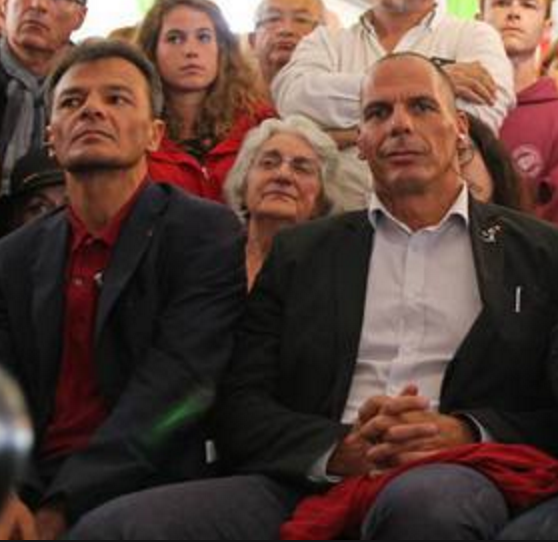
Stefano Fassina was kind enough to respond to my article entitled Europe’s Left After Brexit. His reply follows.
On Sept 6, Yanis Varoufakis offered an interesting review here of the progressive positions addressing EU problems. The first one, he underlines with a clear cultural break, a “standard variety euro-reformism” — practised typically by social democrats — calls for “more democracy”, “more Europe”, and “reformed institutions”. But this option is founded on a fallacy: the European Union has never suffered from a democratic deficit that could be rebalanced with more democracy and a few reforms. The second one identifies “a segment of the Europe Left [that is] now calling for a break with the EU”. He improperly, as explained below, branded this call “Lexit” and associate it to the nationalistic trends now growing. Finally, the third one, described in the manifesto of “Diem25”, the movement he founded and leads, is characterised as “wilful disobedience” to the EU treaties and official pacts with the aim of making EU institutions blink.
His review is incomplete. On the Left, actually on a side larger than the Left as it includes more and more mainstream economists and pragmatic people, there is another position. A position that is difficult to disqualify as prone to and involuntarily in favour of xenophobic and nationalistic parties and movements because it does not want to break with the EU. Actually, it’s quite the opposite. It remains coherent with the internationalist stance of progressive cultures. According to this position, an “amicable divorce” of the euro zone is the necessary condition for saving the EU. This is, considering the most recent authoritative example, the position of Joseph Stiglitz in a book just published: “The Euro: How a Common Currency Threatens the Future of Europe”. It is the position of a lot of people, including myself, who signed the Lexit network appeal “Democracy and Popular Sovereignty Instead of Neoliberal Integration and a Failed Euro-System” (www.lexit-network.org) circulated last June. Finally, it’s the position I clearly stated in the article that he mentions: “the reaffirmation of democratic sovereignty at the national level, to the extent possible in unregulated global markets, to relegitimize and relaunch European cooperation” (click here).
Varoufakis’ analysis forgets the euro-Lexit position because it doesn’t distinguish between the EU and the euro zone. But this is the point. While the strategy of “wilful disobedience”, very difficult, can be effective in an EU country still controlling its currency and its national central bank, it’s unfortunately a bluff for a euro zone country under severe economic, social and financial stress, as the Greek case made dramatically clear. What national government could negotiate relevant violations of the rules without a workable alternative on the table? What national government could address its people, even as desperate as the Greeks were, and receive support for a leap in the dark? Even assuming a euro zone government “brave” enough to breach the rule, who would gain from the chaos generated by EU institutions having their bluff called? The Left? Wouldn’t this be the best context for regressive movements? In Varoufakis’ proposal, it’s simple: a euro country breaches the rules and if the EU institutions don’t blink they take responsibility for the events that ensue. Unfortunately, the story doesn’t end there.
In Varoufakis’ analysis, the EU and the euro zone’s economic and social order is merely the result of undemocratic choices by “big business and international finance”. Unfortunately, it’s more complicated than that. Unfortunately, European peoples are not only the Erasmus generation. Unfortunately, some of the pillars of the euro zone order have broad support among real people, working families, small businesses, and the middle class in very important countries. For instance, in Germany, the great majority of people don’t agree with the changes required to the ECB statute to let it be a lender of last resort. In Germany, even the progressive trade unions representing the manufacturing working class don’t want to leave the usual mercantilist route, the most destructive factor for the single currency.
My point is not to dismiss “wilful disobedience”. My point is to join forces. As we share progressive values and the assessment of the unsustainability of the euro zone, my point is to define a political strategy combining disobedience and a plan for a cooperative dis-union of the single currency, not the EU. It’s less improbable that disobedience leads the “villain” to blink or to chaos if there is a cooperative “Plan B” prepared by transnational initiatives. An immediate opportunity to discuss the combined political strategy could be the meeting organised by the Linke in Berlin on Sept 23rd.
As Yanis correctly quoted, Marx and Engels wrote “Workers of the world, unite,” not “Workers of the world, unite your currencies.”














